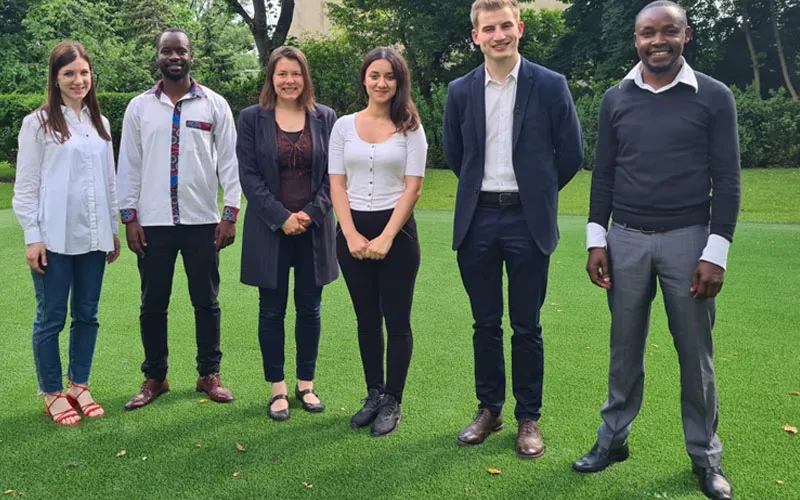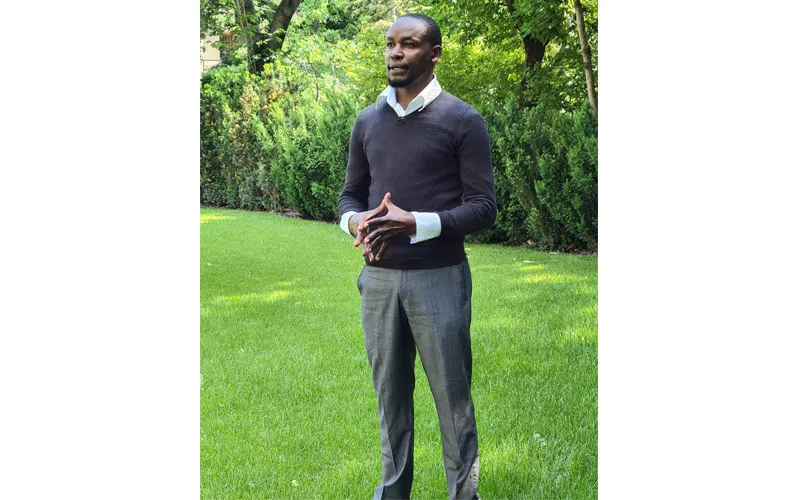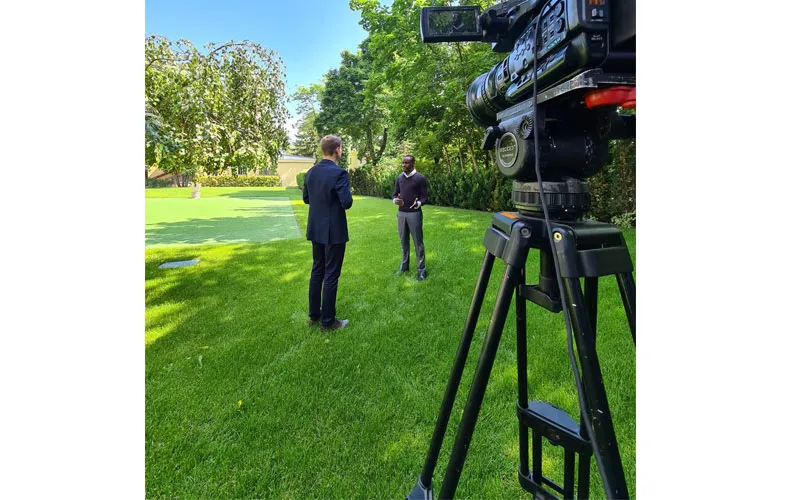At the moment, there are 166 students from various countries enrolled in the scholarship that offers 300 courses at 14 universities in the Central European country. The students are drawn from Nigeria, Kenya, Ethiopia, Syria, Pakistan, Iraq, Israel and Palestine, and Lebanon. About 200 other students have successfully gone through the program that was launched in 2017.
Kennedy, who had lost hope in ever going back to school again, was in the program’s pioneering cohort.
After attaining an undergraduate degree in Agroforestry and Rural Development at Kabianga University in Kenya and completing a Masters in Hungary where he had studied under a scholarship program, Kennedy was locked out of another scholarship that required applicants to have working experience from the civil sector.
“I was a fresh graduate so I wasn’t qualified. So, I had to go back to my country. I was in my country looking for a job for nine months. I never found any job, but I didn't give up,” he says.

(Story continues below)
Kennedy adds, “Fortunately, Hungary Helps launched the first program for the PhD level, and I applied for it and I got it. I would say that this is the biggest thing that has ever happened in my life since it opened doors for many other opportunities.”
Just like Kennedy, Edwin Wagah, also a Kenyan postgraduate student did not find it easy after completing his undergraduate studies in the East African country where the rate of youth unemployment is high.
After graduating with a degree in Chemistry from Kenya-based Moi University and failing to get a job, Edwin started a business, which he said was not financially viable. A friend later persuaded him to apply for the scholarship in Hungary.
A few weeks’ shy of his graduation from Eötvös Loránd University where he is pursuing a Masters degree in Environmental Science, the faithful of the Seventh Day Adventist (SDA) hopes to start an initiative for children living with disabilities who are not facilitated well enough through school.
His inspiration is drawn from a cousin who is living with disability, he says in the interview by EWTN Hungary shared with ACI Africa June 8.
“My first cousin is both deaf and blind. And so over the years I've seen him undergo the challenges simply because he's different from others,” Edwin says.
“At the end of this month, I want to go back home and start a project that is so close to my heart. I'm working to establish a project that will take care of the disabled in society, children living with disability,” he says, adding that he is working to identify partners for the project.
Tristan Azbej, a politician and the State Secretary for the Aid of Persecuted Christians and the Hungary Helps Program noted that the scholarship program is not just for countries experiencing religious persecution.

“We invite young people from either persecuted or just in any way discriminated or not even discriminated, but underprivileged communities,” Mr. Azbej says in the EWTN Hungary interview shared with ACI Africa June 8.
He adds, “We have partner churches in the regions and countries where we are supporting religious communities who face any sort of difficulties. It doesn't have to be persecution. It can also be economic deprivation.”
The official explains that the state agency has all the major churches in the Middle East as its partners. These include Catholic, Protestant as well as Orthodox Churches in sub-Saharan Africa.
Explaining part of the process of the scholarship, Mr. Azbej says, “We advertise our program through the church leaders and the participants or the applicants must go to these leaders for recommendation into our program.”
He adds that to qualify for the scholarship, young people, especially drawn from Christian minority groups, must be practicing Christians.
The government official who also serves as Hungary’s Vice President of the Christian Democratic People's Party (KDNP) in the majorly Christian country says the scholarship is one of the many initiatives the Central European country is undertaking to reach out where Christians are a minority.
“The Hungarian government has recognized that Christianity is the most persecuted religious group in the world today. This may sound like a sweeping statement but surveys show this to be a fact,” Azbej says.
He adds, “We live in a time when there are 340 million people who are discriminated against or threatened by genocidal attacks for their faith in Jesus Christ. The Hungarian government has recognized that we need to act because this is one of the greatest human rights crises of our time.”

He says that fighting for religious freedom requires international cooperation, including governments and international organizations working together.
Through Ihab’s, Hungary’s humanitarian aid program, the State Secretary for the Aid of Persecuted Christians and the Hungary Helps Program is providing relief to countries after terrorist attacks and other disasters.
“We provide a budget for reconstruction of churches, of homes, of schools and hospitals, of communities that had been devastated by religious intolerance and other armed conflicts,” Mr. Azbej says in the EWTN Hungary interview shared with ACI Africa.













